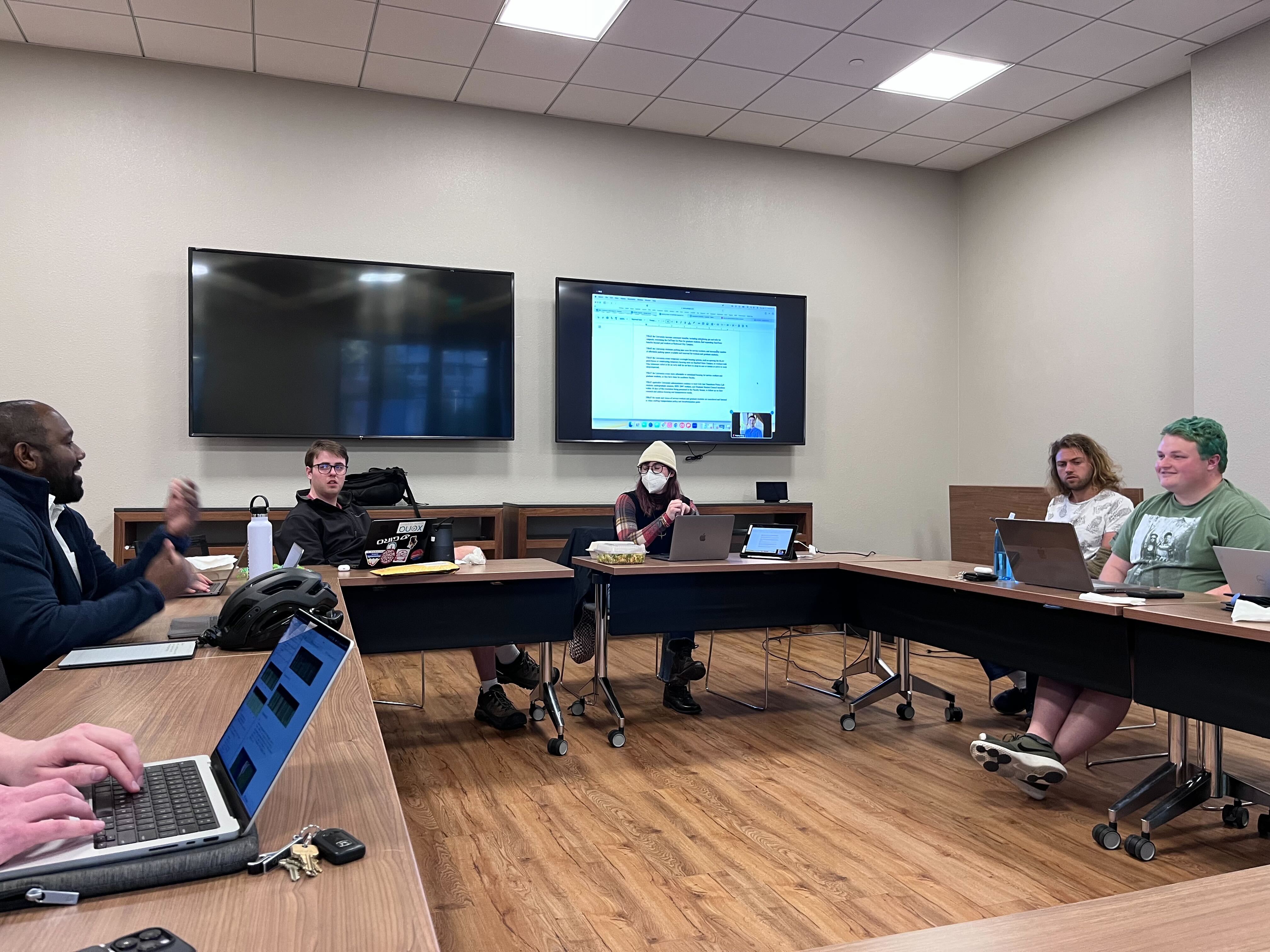The Graduate Student Council (GSC) met with members of the Committee of 12 (C12) to debate the committee’s recently unveiled Honor Code proposals, including the restructuring of the judicial process and further research into exam proctoring, during the council’s Tuesday meeting. Members of the GSC also called for increased support from the University administration regarding the transportation needs expressed by campus service workers, graduate students and scholar populations.
Honor Code proposals
The C12 was charged with proposing changes to the Honor Code, Judicial Charter and Process and interpretations of the Fundamental Standard in 2022. A student stakeholder meeting was held with members from both the Undergraduate Senate (UGS) and Graduate Student Council (GSC) last week following the release of the committee’s proposals, which include restructuring the judicial process and conducting research into the possibility of proctoring examinations.
C12 student co-chair Jamie Fine, a sixth-year Ph.D. student in modern thought and literature, presented the committee’s recommendations to the group at the meeting last week. Fine discussed student concerns and provided clarifications to the proposals during the GSC meeting.
The committee’s recommendations include the establishment of a tiered process for determining penalties associated with Honor Code and Fundamental Standard violations. The levels of review include Alternative Review, which would lead to an Alternate Resolution process (ARP), Mid-Level Review and High-Level Review — for the least to most serious violations, respectively.
Lawrence Berg, a fourth-year Ph.D. student in chemistry and GSC Representative to the Faculty Senate who attended the C12 student stakeholder meeting last week, said that he was concerned about whether the proposal’s ARP would encourage a student accused of violating the Honor Code or Fundamental Standard to “[justify] cheating on an assignment” by claiming that it is “necessary for their own survival.”
Fine, however, said that the idea of implementing a process with tiered penalties was to avoid “scaring the bejesus out of the 18-year-old” frosh.
“I think that there has to be a little bit of grace, to some extent, for learning,” Fine said.
Previous reporting from The Daily revealed that, among the undergraduate population, some students support the potential introduction of proctoring examinations while others oppose it. Regardless of their stance on proctoring, however, many students said that the University should provide support to help students learn from their mistakes.
GSC co-chair and third-year aeronautics and astronautics Ph.D. student Jason Anderson encouraged GSC Councilors to support the C12’s recommendations, saying that passing the recommendations would be more beneficial than keeping the current Honor Code and Judicial Process. The Honor Code and Judicial Charter and Process were both last updated before the year 2000. However, according to Anderson, the numerous technological advancements that have occurred in the past couple of decades, for instance, the dissemination of generative AI technology, calls for changes to such documents in order to reflect the needs and realities of present-day students.
Transportation needs
The GSC also debated a resolution supporting more public transit on and beyond campus. Transportation has been a frequent area of advocacy and discussion for the GSC. According to Berg, the resolution reflects the needs of campus workers, in addition to the previously-discussed transportation needs of graduate students. After continued student advocacy led by GSC representatives, the University has announced the temporary and partial return of the Marguerite Shopping Express, which connects Stanford’s campus with nearby shopping centers.
Undergraduate members of the Stanford Just Transitions Policy Lab conducted a survey to gauge the needs of Stanford service workers, finding that workers are in significant need of improved transportation to and from campus. Potential improvements would include expanding the vanpool routes offered to service workers in addition to instating a new Marguerite line to reach East Palo Alto. The expanded transit would reach service workers and graduate students currently housed in areas farther from campus.
Several councilors said that they hope University administration will address the need for expanded transit, as advocated for by workers, graduate and undergraduate populations.
“In these conversations, we’ve realized that there was quite a bit of overlap between the things that the SEIU workers wanted and what graduate students have been wanting,” Berg said. Berg added that the survey results revealed that “service workers receive even less support than we do as graduate students.”
Stanford service workers are represented by the local chapter of the Service Employees International Union (SEIU 2007). Meanwhile, last week, graduate student-workers at Stanford formally launched a unionization campaign for the Stanford Graduate Workers Union (SGWU), yielding more than 2500 signed cards.
The GSC also voiced their support for postdoc advocacy by unanimously passing a resolution written by the Stanford University Postdoctoral Association (SURPAS) outlining steps to amplify postdocs’ advocacy audience and efforts.
